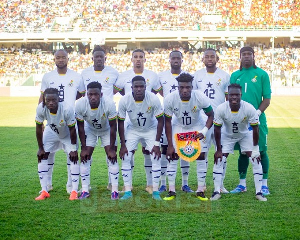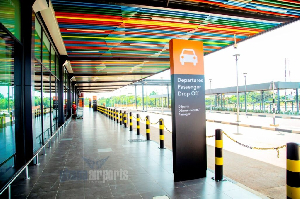c
World Vision Ghana (WVG) has inaugurated ten school clubs in the Garu–Tempane District and trained its members in Farmer Managed and Natural Regeneration (FMNR) concept as part of measures to help scale up interest of the children on environmental issues.
The training which attracted 116 participants across the 10 school clubs comprised 67 boys, 39 girls and 10 teachers who are patrons of these clubs.
The FMNR is an ecological restoration project and involves selecting and pruning stems regenerating from stumps of naturally grown trees on the field to give fewer ones more space to grow. This stimulates faster growth of the trees.
The FMNR which begun in the Talensi District by the Talensi Area Development Programme (ADP) WVG under the leadership of Messrs Norbert Akolbila and Peter Abugah both former Staff of WVG has yielded positive results.
Speaking to the Ghana Web in an interview during the training at Garu, the ADP Manager of WVG in charge of the Garu-Temapne District, Mr Francis Gumah explained that children were good agents of change and therefore introducing the concept to them would help scale up the FMNR to many more communities in the district.
He added that it was good to “catch them young with this initiative as they were the ones who would suffer the consequences most from the hazards of environmental degradation in future”.
He indicated that 13 communities in the District had already been hooked to the FMNR and mentioned some of the communities as Karateshie, Natinga, Wanwago,Susudi ,Zamballa No 2, Goam 1 and 2, Tariganga, Benwoko, Nyosbara, Konkomada Zawsi, Duadiyeriga, Arugbal and Kugashiegu .
Mr Gumah said the rest of the communities where the clubs were initiated were new to FMNR and expressed optimism that the concept would work very well in the area to solve the numerous problems associated with the environment.
Most farmers in the area have enjoyed multiple benefits from the FMNR including getting fodder to feed animals, rafters to roof buildings and medicinal plants.
The school children are not left out of the benefits because they could feed on different types of fruits produced through the FMNR whenever they were hungry.
As result of the successes chalked by the FMNR, WVG has replicated the concept in its operational areas in the Upper East Region including the Bawku West, Kassena-Nankana and the Garu-Tempane Districts.
As part of the training programme, an expert in FMNR, Mr Norbert Akolbila, who facilitated the programme took the children through Pictorial power point presentation on FMNR. The participants were later taken to the field to have a practical feel of what FMNR was all about. They were taken through the various steps of the FMNR concept which included; selection of
desired tree stumps, the removal of unwanted stems and side branches as well as cutting emerging new stems and pruning side branches from time to time.
The Club Members and Patrons were facilitated to develop their own roles and responsibilities. These among others included sensitizing and educating their colleagues on the importance of trees to mankind, club members to educate their peers and community members on the dangers of bush fires, educate community members on the proper way of pruning as well as help in scaling up the FMNR in the district.
The Facilitator entreated the patrons to guide the clubs in the full execution of the FMNR activities to ensure its success in the District.
The independent Community Development Facilitator and Trainer impressed upon the Garu-Tempane ADP of WVG and officials of the Ghana Education Service to encourage and provide support to the School clubs and the patrons.
Some of the school Children going through FMNR practical Training sessions
General News of Thursday, 17 April 2014
Source: Samuel Adadi Akapule, Garu(UE)
















